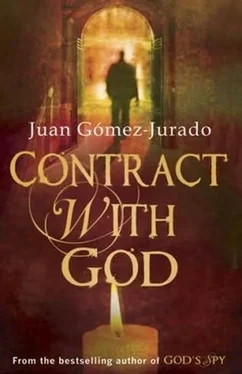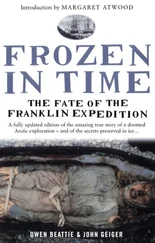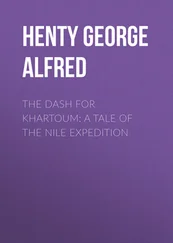‘You know, he had an emergency like this one. One night he couldn’t get into the building because of an alarm or something. Anyway, the pressure built up in the drain pipes and they started bursting and, you know, there was shit all over the fucking place.’
‘Yeah… like fucking Vietnam.’
‘Dude, you never set foot in Vietnam, right? My father was there.’
‘Your father spent the seventies stoned.’
‘The thing is that Louie Pigtails is now Bald Louie. Think about what a fucked-up scene that was. What I’m hoping is that there’s nothing too valuable up there, because by tomorrow everything’s gonna be shit brown.’
The guard looked again at the central monitor in the lobby. The emergency lights in room 328E were flashing insistently with a yellow light, which meant there was a problem with the water or gas pipes. The building was so smart it could tell you when your shoes were untied.
He checked the directory to verify the location of 328E. When he realised where it was, he went pale.
‘Fuck, it’s the principal board room on the thirty-eighth floor.’
‘Bad deal, huh, buddy?’ said the fat plumber. ‘I’m sure it’s full of leather furniture and Van Gongs.’
‘Van Gongs? What the fuck! You ain’t got no culture at all. It’s Van Gogh. Gogh. You know.’
‘I know who he is. The Italian painter.’
‘Van Gogh was a German and you’re a jerk. Let’s split and go to Spinato’s before they close. I’m starving over here.’
The guard, who was an art lover, didn’t bother maintaining that Van Gogh was actually Dutch because at that moment he remembered that there really was a Cézanne hanging in the board room.
‘Guys, wait a minute,’ he said, coming out from behind the reception desk and running after the plumbers. ‘Let’s talk about this…’
Orville flopped down in the president’s chair in the board room, a chair that the owner hardly ever used. He thought he might take a nap there, surrounded by all the mahogany panelling. Once he’d recovered from the adrenalin of acting in front of the building guard, the tiredness and the pain in his hands washed over him again.
‘Fuck, I thought he’d never leave.’
‘You did a great job convincing the guy, Orville. Congratulations,’ Albert said, pulling out the top level of his tool box from which he extracted a laptop computer.
‘It’s a simple enough procedure to get in here,’ Orville said, pulling up the huge gloves that covered his bandaged hands. ‘It’s a good thing you were able to punch in the code for me.’
‘Let’s get started. I think we have about half an hour before they decide to send someone up to check on us. At that point, if we haven’t managed to get in, we’ll have another five minutes or so before they reach us. Show me the way, Orville.’
The first panel was simple. The system was programmed to recognise only Raymond Kayn’s and Jacob Russell’s palm prints. But it had an error common to all systems that rely on an electronic code using a lot of information. And an entire palm print is definitely a whole lot of information. To expert eyes, the code was easy to detect in the system’s memory.
‘Bim bam here goes the first one,’ Albert said, closing the laptop when the orange light on the black screen lit up and the heavy door opened with a buzz.
‘Albert… they’re going to realise something’s up,’ Orville said, pointing to the area around the plate where the priest had used a screwdriver to pry open the lid in order to get at the system’s circuits. The wood was now cracked and splintered.
‘I’m counting on it.’
‘You’re joking.’
‘Trust me, OK?’ the priest said, going into his pocket.
A mobile phone was ringing.
‘Do you think it’s a good idea to answer a call right now?’ Orville queried.
‘I agree,’ said the priest. ‘Hello, Anthony. We’re inside. Call me in twenty minutes.’ He hung up.
Orville pushed open the door and they entered the narrow, carpeted hallway that led to Kayn’s private lift.
‘I wonder what kind of trauma a man has to suffer to lock himself up behind so many walls,’ Albert said.
MP3 File Recovered by the Jordanian Desert Police from Andrea Otero’s Digital Recorder after the Moses Expedition Disaster
QUESTION: I want to thank you for your time and your patience, Mr Kayn. This is proving to be a very difficult task. I really appreciate the way you have shared the more painful details of your life, such as your flight from the Nazis and your arrival in the United States. Those incidents add real human depth to your public persona.
ANSWER: My dear young lady, it’s not like you to beat around the bush before asking me what you want to know.
Q: Great, everyone seems to be giving me advice on how to do my job.
A: I’m sorry. Go ahead, please.
Q: Mr Kayn, I understand that your illness, your agoraphobia, was caused by the painful events of your childhood.
A: That’s what the doctors believe.
Q: Let’s proceed chronologically, even though we may need to make certain adjustments when the interview is broadcast on the radio. You lived with Rabbi Menachem Ben-Schlomo until you came of age.
A: That’s correct. The rabbi was like a father to me. He fed me even if he had to go hungry. He gave purpose to my life so that I could find the strength to overcome my fears. It took over four years before I was able to go out into the street and interact with other people.
Q: That was quite an accomplishment. A child who couldn’t even look another person in the eye without having a panic attack became one of the greatest engineers in the world…
A: It only happened because of the love and faith of Rabbi Ben-Schlomo. I give thanks to the All Merciful for placing me in the hands of such a great man.
Q: Then you became a multimillionaire, and finally a philanthropist.
A: I prefer not to discuss the last point. I don’t feel very comfortable talking about my charitable work. I always feel it’s never enough.
Q: Let’s go back to the last question. When did you realise that you could lead a normal life?
A: Never. I’ve struggled against this affliction all my life, my dear. There are good days and bad days.
Q: You’ve run your business with an iron hand, and it’s among the top fifty of the Fortune Five Hundred. I guess you could say that there have been more good days than bad ones. You also married and had a son.
A: That’s right, but I’d rather not speak about my personal life.
Q: Your wife left and went to live in Israel. She’s an artist.
A: She’s done some very fine paintings, I can assure you.
Q: What about Isaac?
A: He… was great. Quite something.
Q: Mr Kayn, I imagine it’s very difficult for you to talk about your son but it’s an important point and I want to pursue it. Especially seeing the look on your face. It is clear you loved him a great deal.
A: Do you know how he died?
Q: I know that he was one of the victims of the attack on the Twin Towers. And as a result of… fourteen, almost fifteen hours of interviews, I understand that his death triggered the return of your illness.
A: I’m going to ask Jacob to come in now. I want you to leave.
Q: Mr Kayn, I think that deep down you really do want to talk about this; you need to. I’m not going to bombard you with cheap psychology. But do whatever you think best.
Читать дальше






![Traudl Junge - Hitler's Last Secretary - A Firsthand Account of Life with Hitler [aka Until the Final Hour]](/books/416681/traudl-junge-hitler-s-last-secretary-a-firsthand-thumb.webp)





